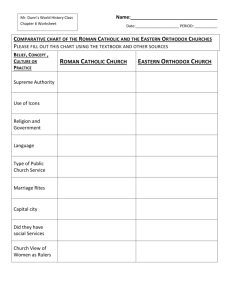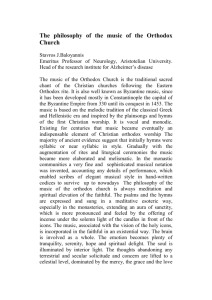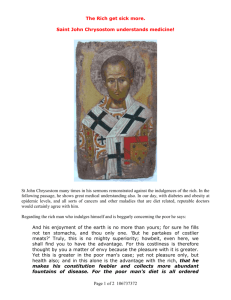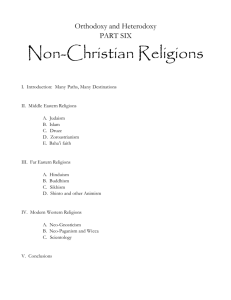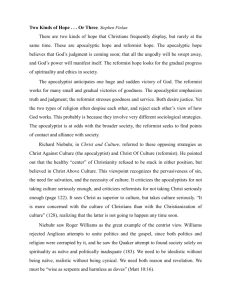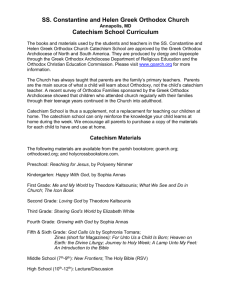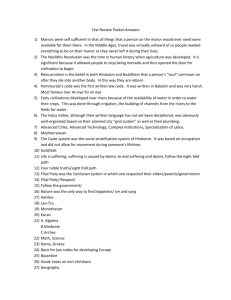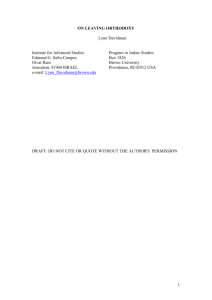if you are an 'orthodox' ………………………… three cheers
advertisement
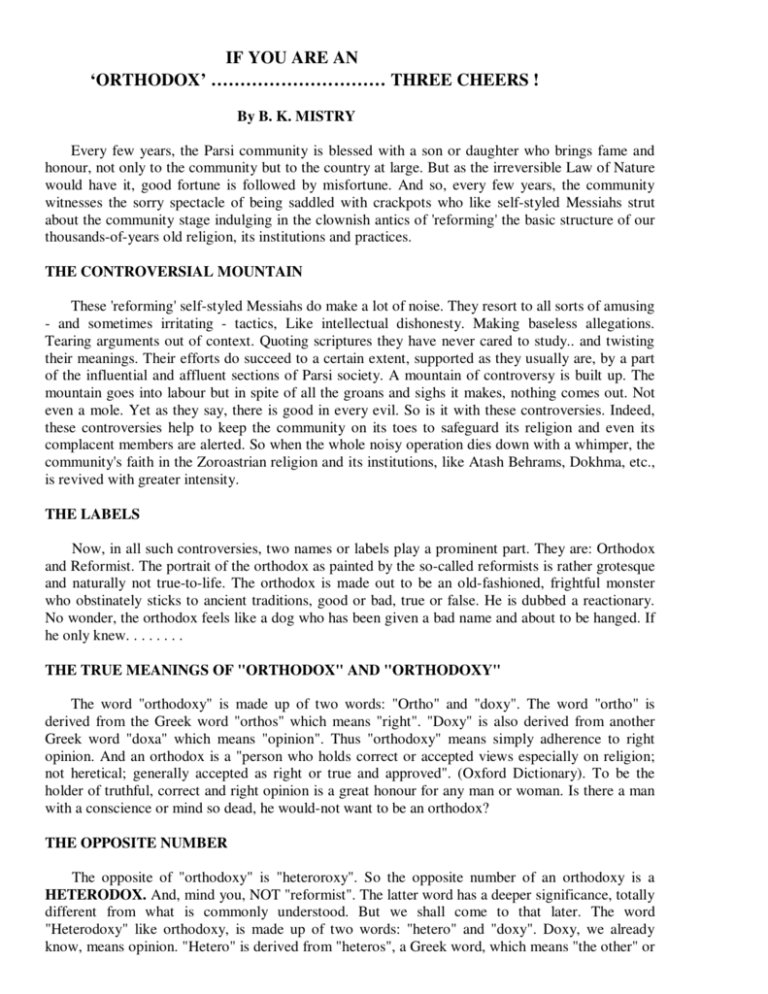
IF YOU ARE AN ‘ORTHODOX’ ………………………… THREE CHEERS ! By B. K. MISTRY Every few years, the Parsi community is blessed with a son or daughter who brings fame and honour, not only to the community but to the country at large. But as the irreversible Law of Nature would have it, good fortune is followed by misfortune. And so, every few years, the community witnesses the sorry spectacle of being saddled with crackpots who like self-styled Messiahs strut about the community stage indulging in the clownish antics of 'reforming' the basic structure of our thousands-of-years old religion, its institutions and practices. THE CONTROVERSIAL MOUNTAIN These 'reforming' self-styled Messiahs do make a lot of noise. They resort to all sorts of amusing - and sometimes irritating - tactics, Like intellectual dishonesty. Making baseless allegations. Tearing arguments out of context. Quoting scriptures they have never cared to study.. and twisting their meanings. Their efforts do succeed to a certain extent, supported as they usually are, by a part of the influential and affluent sections of Parsi society. A mountain of controversy is built up. The mountain goes into labour but in spite of all the groans and sighs it makes, nothing comes out. Not even a mole. Yet as they say, there is good in every evil. So is it with these controversies. Indeed, these controversies help to keep the community on its toes to safeguard its religion and even its complacent members are alerted. So when the whole noisy operation dies down with a whimper, the community's faith in the Zoroastrian religion and its institutions, like Atash Behrams, Dokhma, etc., is revived with greater intensity. THE LABELS Now, in all such controversies, two names or labels play a prominent part. They are: Orthodox and Reformist. The portrait of the orthodox as painted by the so-called reformists is rather grotesque and naturally not true-to-life. The orthodox is made out to be an old-fashioned, frightful monster who obstinately sticks to ancient traditions, good or bad, true or false. He is dubbed a reactionary. No wonder, the orthodox feels like a dog who has been given a bad name and about to be hanged. If he only knew. . . . . . . . THE TRUE MEANINGS OF "ORTHODOX" AND "ORTHODOXY" The word "orthodoxy" is made up of two words: "Ortho" and "doxy". The word "ortho" is derived from the Greek word "orthos" which means "right". "Doxy" is also derived from another Greek word "doxa" which means "opinion". Thus "orthodoxy" means simply adherence to right opinion. And an orthodox is a "person who holds correct or accepted views especially on religion; not heretical; generally accepted as right or true and approved". (Oxford Dictionary). To be the holder of truthful, correct and right opinion is a great honour for any man or woman. Is there a man with a conscience or mind so dead, he would-not want to be an orthodox? THE OPPOSITE NUMBER The opposite of "orthodoxy" is "heteroroxy". So the opposite number of an orthodoxy is a HETERODOX. And, mind you, NOT "reformist". The latter word has a deeper significance, totally different from what is commonly understood. But we shall come to that later. The word "Heterodoxy" like orthodoxy, is made up of two words: "hetero" and "doxy". Doxy, we already know, means opinion. "Hetero" is derived from "heteros", a Greek word, which means "the other" or "the opposite". Thus "heterodoxy" is the other or the opposite opinion and a "heterodoxy" is naturally the holder of such opinion. Thus, if an orthodox is a person who holds, true, right, correct, accepted, approved and non-heretic opinion on religion, the heterodox is one who holds false, wrong, incorrect, rejected, condemned and heretic opinion. Which shows that all these years, we have been wrongly referring to the heterodox as "reformer" or "reformist" – titles which we generously gave them in our ignorance, but which they did not and do not deserve. WHO IS THE REFORMIST? Who gave the heterodox the right to call himself "reformist"? Perhaps, as in everything else, he twisted the meaning and usurped the title without anybody's consent! So, let's set the records straight. "To reform" means "to transform; to restore; to rebuild; to make better; to bring to a better way of life". "Reform" as a noun means "a stricter offshoot or branch of a religious order". "Reformist" or "reformer" is naturally an advocate of reform. (All meanings from Chamber's 20th Century Dictionary . . . . . . . 1976 Edition) Do any of these definitions of reform apply even remotely to the Heterodox? The real reformist wants to restore and rebuild. The heterodox, to break up and destroy. The reformist tries to enforce the stricter disciplines of religion in order to restore it to its glorious past. The heterodox wants to relax all the rules and treats religion as some kind of common commodity which can he auctioned off on the streets. If anyone deserves the title of "Reformist", it is the Orthodox who should be given it. An orthodox-reformist not only adheres to truthful and right opinion but makes every effort to ensure stricter disciplines in our religious institutions, rituals and practices so that these can be restored to their ancient pristine purity. So now, my dear orthodox friend, you know where you stand. The next time somebody calls you orthodox, pull your chin up, stick your chest out and exclaim, "You said it, old boy! How wonderful !" (Dini Avaz Vol. 2- No. 5)
